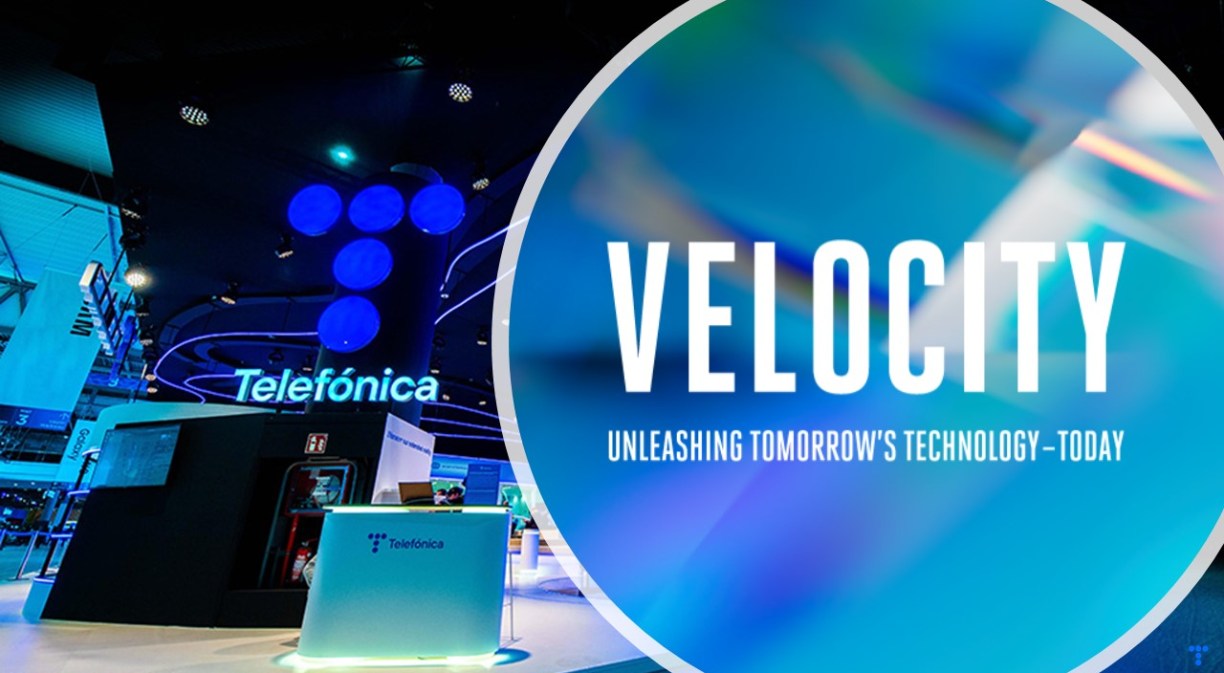The MWC makes a successful comeback focused on business sector and policy debates
The MWC23 has exceeded the 85,000 attendees estimated by GSMA. With “Velocity: Tomorrow’s technology – today” as its main theme, and more than 1,000 high level speakers and 2,400 exhibitors, the event is once again building pace as a meeting point and a place to find the latest developments in connectivity and technology.
The event started last year to shift its focus towards the business sector, to become more than just a product exhibition space for the end consumer. It has been an ideal setting not only to present new innovations but to see how the latest technological advances work applied to different industries. It is no wonder that the telecommunications sector has become an enabler for other industries beyond connectivity, with a major impact in their digital transformation.
Under the motto “Making Things Happen”, Telefónica welcomed its visitors with demonstrations showcasing the transformative power of technology for different sectors, including agriculture, industry, services, and telecoms. The Agora took once again the stage with talks and presentations from top-level speakers.
For those who were unable to attend, all content is available on demand at Telefónica’s mwc23 site, which also hosts three handbooks with use cases of digital transformation in different industries. And “La Cabina” was presented: an all-year exhibition space with over 180 technological experiences located in its 2,000 square meters in Madrid: an inspiration centre for the digital transformation of business sector and institutions.
And the MWC23 was also a stage for policy debates. The GSMA Ministerial Programme brought together the largest number of institutional delegations in history, with 196 delegations from more than 150 countries, almost 70 ministers and more than 100 heads of regulatory authorities.
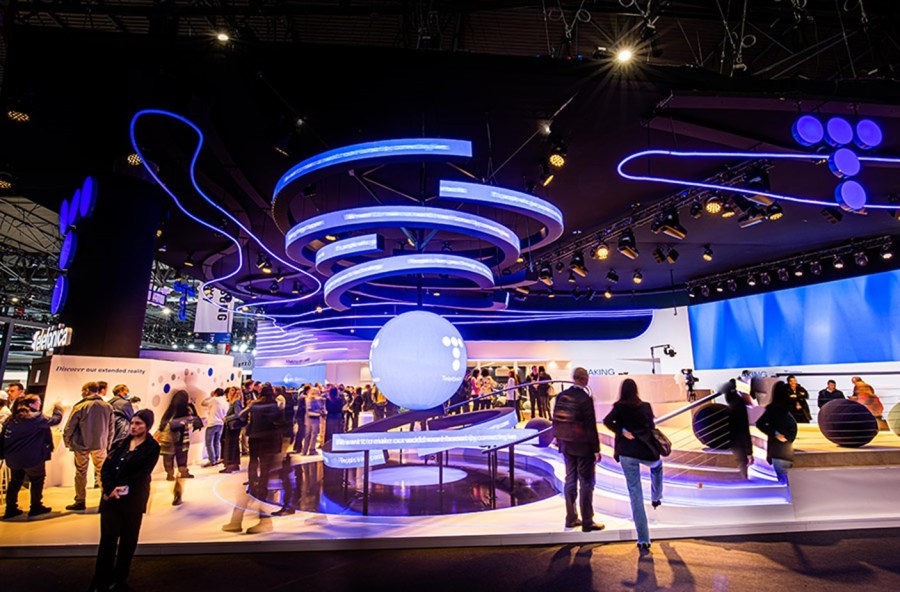
The launch of Open Gateway: a GSMA initiative to turn networks into developer-ready platforms
In his opening keynote, José María Álvarez-Pallete, CEO of Telefónica and Chairman of the GSMA, announced the newly launched GSMA Open Gateway initiative, which the initial support of 21 operators. The initiative will enable a federation of standardised APIs (Application Programme Interface) to provide open, interoperable, and real time access to operators’ networks functionalities for developers and hyperscalers, creating new experiences.
Different Open Gateway demonstrations were available to see at the MWC23, including how user experience in mobile cloud gaming – and interactive high-definition video applications – can be significantly enhanced by leveraging advanced network functionality through global network APIs. Application developers from Blacknut, Zoom and Vonage utilised the GSMA Open Gateway QoD API to add innovative features and enhance the mobile experience.
And Telefónica, through its open innovation initiative Wayra, launched a global call for start-ups working on disruptive technologies with Open Gateway based applications.
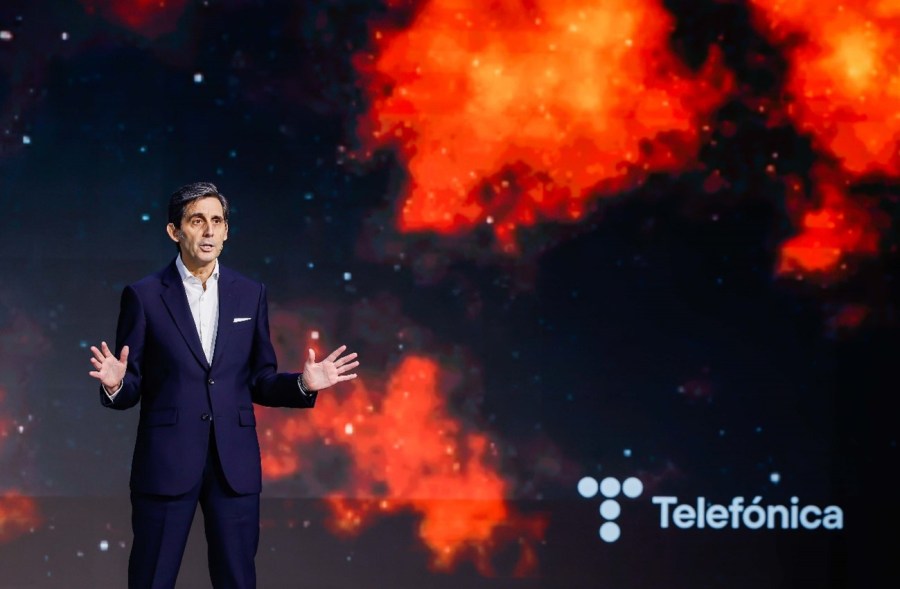
The “fair share” policy debate took the stage
The debate on fair share plays David against Goliath. The six US companies, that are the subject of the contribution, have a combined market capitalisation of more than $6 trillion, more than 30 times that of the five largest European telecoms groups combined.
A debate on how to trigger the financing of the billions of euros of infrastructure investment needed over the next decade and adapt to regulation to changing times may prove useful.
In her keynote, Christel Heydemann, Orange’s CEO hit out at the contradictory European landscape: “Over the last ten years the situation for the European telcos has become paradoxical”, and added “from fierce regulation to sometimes outdated regulations, our sector is dealing with contradictory requirements”. Regarding the European Digital Decade targets she stated that “Telcos have to deal with a very difficult equation between investment and regulation” and added that “fair play rules start by reflecting the unbalanced situation” in a context where “five of the largest online traffic generators account for 55 per cent of daily traffic on telco networks”.
Deutsche Telekom CEO, Tim Höettges, compared the 55 billion euros invested by European telcos on infrastructure last year to the 1 billion euros invested in connectivity by hyperscalers.
EU’s commissioner Thierry Breton indicated that he is keeping an “open mind” on the “fair share debate”. An in reference to the 12-week consultation launched by the European Commission, he emphasized that “we will need to find a financing model for the huge investment, fairly distributed”. “We need the connectivity networks of the future”, where regulation has to adapt to the changing times. “We rely on regulatory frameworks that were conceived on the basis of legacy technologies… But what is at stake today is very different”.
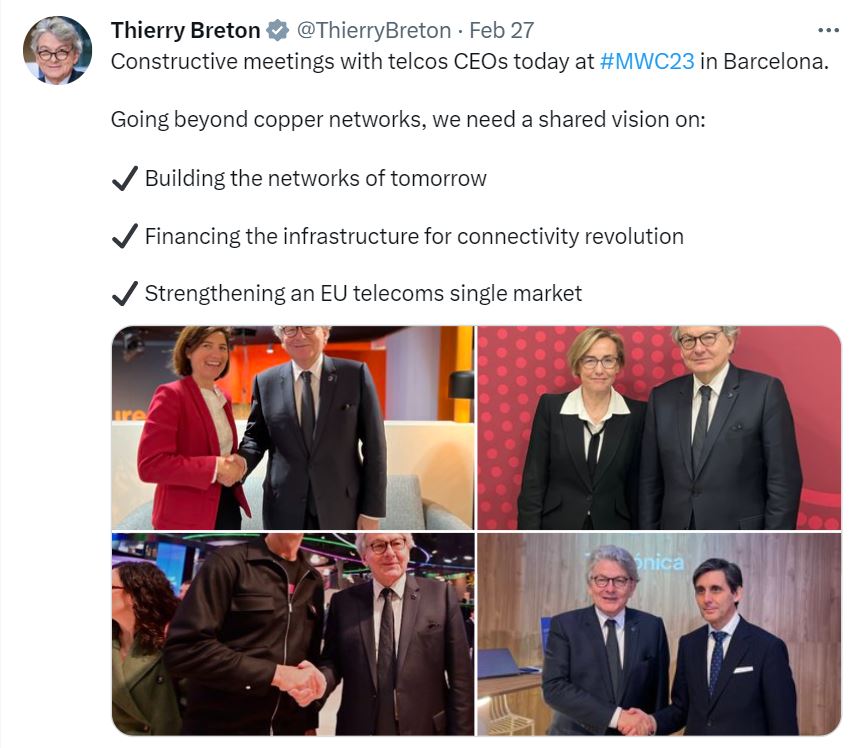
Investment-friendly market structures play for relevance
The decline of Europe was lamented by Deutsche Telekom CEO Tim Hoëttges arguing the need of a regulatory and competition environment enabling operators’ consolidation among other aspects.
Regarding consolidation Breton said he wanted a “serious discussion about the possible existing obstacles” to cross-border deals.
Mike Fries, the head of Liberty Global responded that the European Commission’s interest in cross-border consolidation is “a dream that doesn’t reflect the reality of operating businesses” as the potential cost savings of being in multiple markets are marginal. He added “you first need in-market consolidation before you can get anywhere near cross-market”. Over the past six years, Liberty Global has concentrated from owning 17 operators globally to just five, in the UK, Holland, Belgium, Switzerland and Ireland. “For the longest time we felt we could be a mile wide and an inch deep”, Fries said, but now “we’d rather be in a handful of markets and a mile deep”.
In the same vein, during his intervention, at “Re-Examining mobile market structure“ session during the MWC23 ministerial programme, Juan Montero Rodil, Chief Public Policy, Competition and Regulatory officer delved into the linkage between investment-friendly market structures and the size of the specific market, advocating for in-market consolidation.
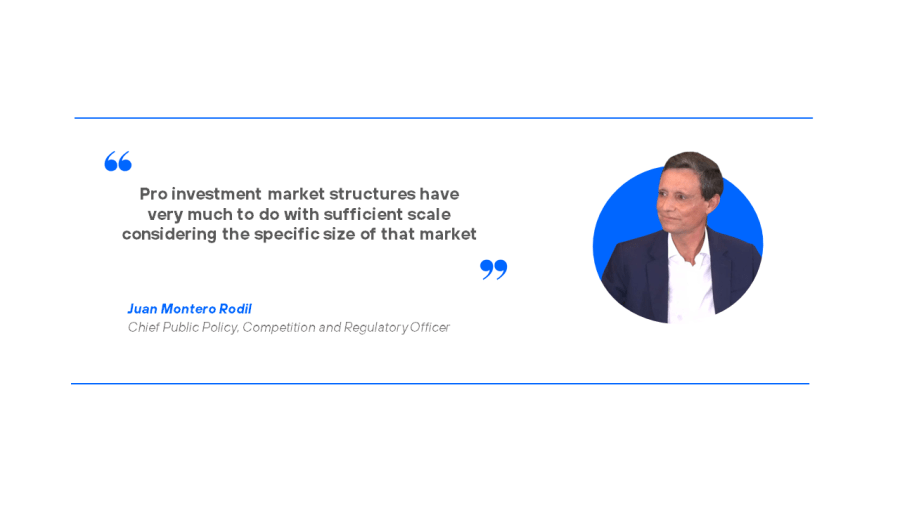
The MWC23 became a turning point into future policy discussions and ecosystem collaboration for the technological uptake in all sectors.

